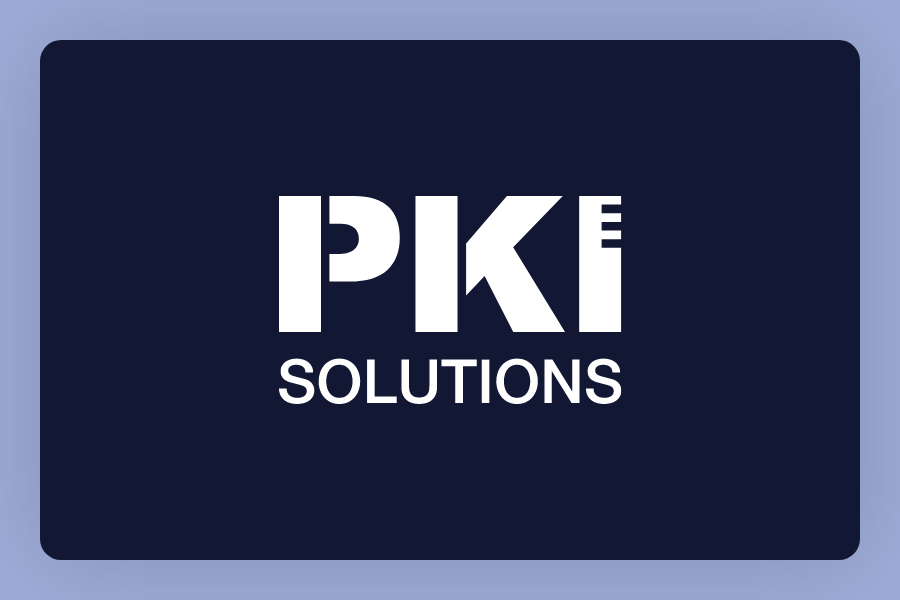Ensuring Security and Compliance in Hybrid PKIs with PKI Spotlight
No one deployment type of PKI works for every organization. While most enterprises design, operate, and trust their business identity systems on their on-premises PKI, others look to offload some operational complexities to other organizations. However, these hybrid, cloud-based, or managed PKIs do not eliminate security risks within the PKI, nor are they the panacea of resilience they may be portrayed as addressing by manufacturers.
Despite the cloud-forward nature of managed PKI providers like Keyfactor, Venafi, and AppViewX, fundamental PKI security vulnerabilities still exist within organizations even with these solutions. PKI Spotlight delivers the visibility and control needed to monitor and safeguard these essential PKI components, regardless of the source of certificate issuance—including third-party managed PKI services.
SpecterOps Certified Pre-Owned Vulnerabilities: Present in Every PKI
The well-documented vulnerabilities identified by SpecterOps in their Certified Pre-Owned whitepaper exist not only in traditional on-prem PKIs but also across all PKI deployments that leverage Active Directory. Organizations still depend on key AD-integrated components even when certificate services are hosted or managed in the cloud. The reason is that the managed PKI solutions use objects in AD to redirect enrollment requests to their cloud services. These objects use the same templates, permissions, ACLs, and rules an on-premises PKI uses. Vulnerabilities such as Enrollment Services, NTAuth, and the enterprise root store are exploited within these AD objects.
PKI Spotlight is uniquely positioned to continuously monitor these critical AD PKI components for unauthorized changes or misconfigurations that could otherwise go unnoticed:
- Enrollment Services Objects – Tracks changes to objects representing CAs, such as modifying available templates. Adversaries may attempt to modify this object to send or intercept enrollment requests with their environment and bypass your managed provider. They can also manipulate the available templates and compromise security through fraudulent enrollment requests.
- NTAuth Store – Monitors entries that define which CAs are trusted to issue smart card logon certificates. Manipulating this object could allow a threat actor to force organizational computers to trust their 3rd party CA and freely authenticate with certificates not issued from a managed PKI provider.
- Root Certificate Stores—Detects unauthorized additions that could introduce untrusted or rogue CAs into the environment. Adversaries could cause a denial of service across the organization or cause faults in authentication systems that could fail to “open” and allow authentication attempts that would otherwise be forbidden. In addition, third-party PKIs can be forced into the store and replicated to endpoints throughout the organization.
Without monitoring, attackers could exploit these AD-integrated PKI components to issue unauthorized certificates, escalate privileges, or impersonate users and machines.

Expand Your PKI Visibility
Discover why seeing is securing with revolutionary PKI monitoring and alerting.
Learn More About PKI Spotlight®Visibility into Template Configuration and Access
Templates define who can request what kind of certificate—and under what conditions. In both ADCS and managed PKI platforms, the list of available templates is stored within Enrollment Services as an attribute. Even in cloud PKI deployments, these AD-linked template configurations often remain in place and govern access control.
PKI Spotlight:
- Detects changes to available templates that could open up unintended issuance paths.
- Alerts on misconfigurations that expose sensitive templates to non-privileged users.
Organizations risk exposing their environments to lateral movement or privilege escalation caused by overly permissive certificate issuance if these templates are not closely monitored.
High-Value Certificate Alerting
Some certificates present significantly higher risks than others. Certificates issued to domain controllers, global administrators, or devices with elevated access should be treated with the same urgency as privileged accounts.
PKI Spotlight:
- Identifies and alerts on issuance of high-value certificates.
- Tracks sensitive certificates’ lifecycle events—issuance, renewal, and revocation.
Without visibility into these certificates, organizations could miss key indicators of compromise or misuse of identity infrastructure.
Ensuring Resilience in Cloud HSMs and Hybrid Architectures
Many cloud-managed PKI platforms depend on Hardware Security Modules (HSMs) for key storage and cryptographic operations. Outages in HSM services can halt certificate issuance, affecting authentication, device enrollment, and secure communication.
Recent high-profile incidents with managed PKI providers because their solution used a cloud HSM, which suffered a service outage issue, underscore the need for proactive monitoring and alerting.
PKI Spotlight enhances resilience by:
- Monitoring the availability and health of on-prem and cloud-based HSMs (nCipher and Luna HSMs supported today, more to come soon)
- Integrating with broader monitoring platforms to detect outages in related infrastructure. Direct support for Splunk and other platforms via standards-based Syslog.
Without this visibility, organizations are left in the dark during a service disruption, which delays response and increases operational risk.
Why Monitoring Still Matters in a Cloud-First World
While cloud PKI solutions reduce infrastructure management overhead, the security backbone still ties back to Active Directory. Key security objects, configuration policies, and access controls are often managed on-prem—even if the CA is not.
PKI Spotlight ensures organizations:
- Maintain real-time visibility into PKI-related AD objects.
- Real-time resilience and testing to ensure uptime of on-prem and cloud resources
- Enforce best practices and detect configuration drift.
- Monitor critical certificate templates and lifecycle events.
The illusion of diminished responsibility can be perilous in hybrid and cloud PKI deployments. Lacking visibility into the components that govern access and trust, organizations become vulnerable to both external threats and internal errors.
Strengthening Hybrid PKI Security with PKI Spotlight
As enterprise PKIs evolve, visibility and control over AD-integrated components are essential. PKI Spotlight provides targeted, real-time monitoring and posture management across the PKI stack—mainly where other solutions fall short.
Whether you are entirely cloud-native, managing a hybrid CA, or operating fully on-premises, PKI Spotlight ensures that your PKI foundation stays resilient, secure, and compliant.
Want to discover how PKI Spotlight can protect your environment from overlooked PKI vulnerabilities? Contact us today for a demo and learn how we can help safeguard your identity infrastructure in a cloud-first world.

 Schedule a Demo
Schedule a Demo
